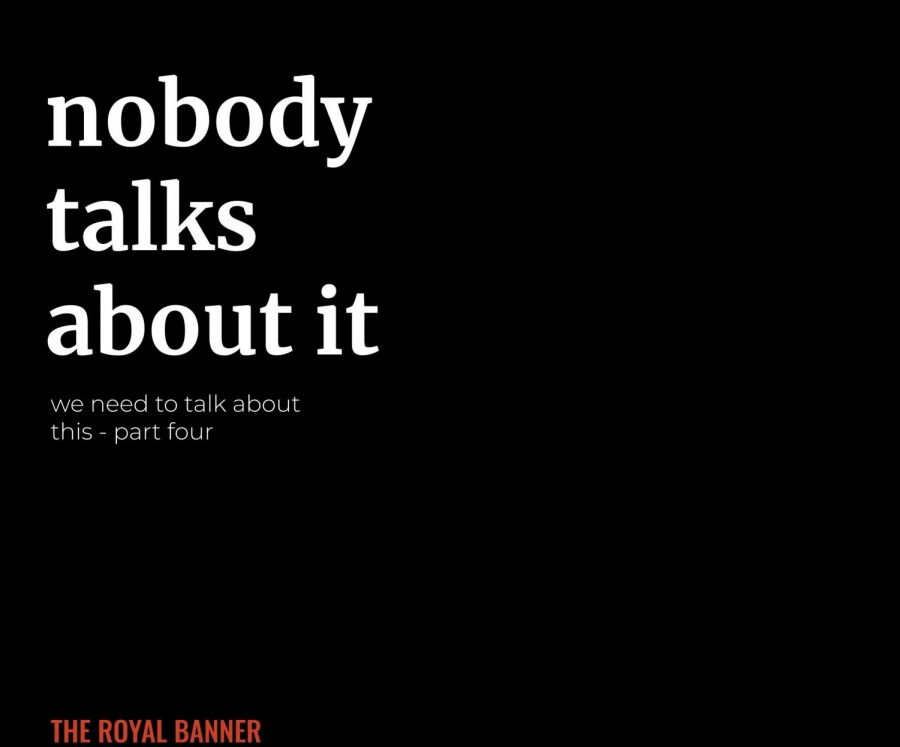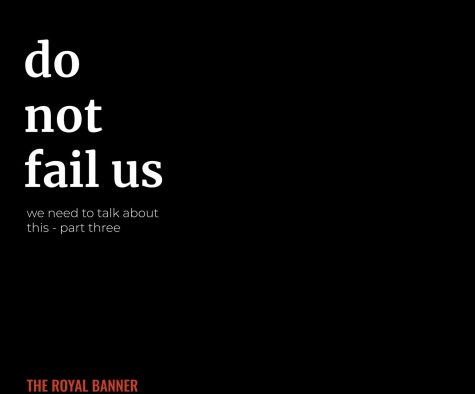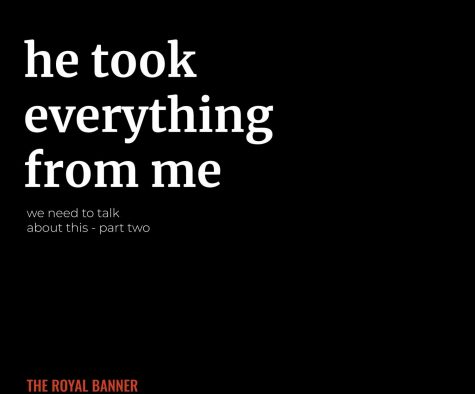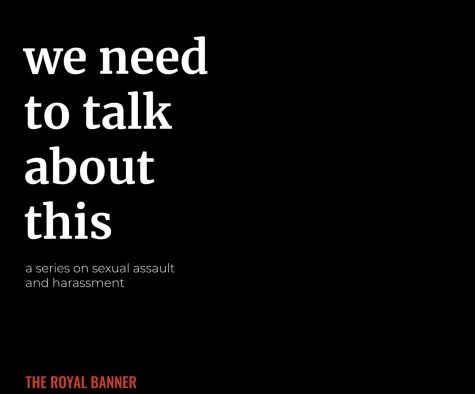Part Four: Nobody Talks About It
This is part four in the Banner’s series on sexual assault and misconduct.
In my sophomore year, a fellow student told me that he had seen a popular student steal my jacket from my locker. After my parents emailed the Dean of Students, I was pulled out of my geometry class to talk about what happened the next day. Without going into too much detail, I was horrified.
Being thought of as a snitch or being responsible for making a big deal out of nothing was the last thing I wanted. Nevertheless, the person who stole my jacket was suspended and it was all the school could talk about, which consequently made me dread going to school every day. His friends approached me on the bus and told me that I was lying and that he didn’t steal my jacket, even though my jacket reappeared in my locker after I reported him.
This story is in no way comparable to that of sexual assault victims, but it highlights the distressing aspects of the same culture which I am talking about. The victim-blaming one. The one that muffles victims’ voices when they try to speak out about the violation they endured. Often, they fear scrutinization from others, do not want to have to tell their story over and over again. They don’t want to hear that they are lying to get attention, just as I was by the jacket thief’s friends.
Nobody talks about it, it’s often difficult to prove innocence or guilt.
The culture around sexual assault is the way it is for a few reasons: nobody talks about it, it’s often difficult to prove innocence or guilt, and nobody wants to believe that someone they are friends with can do something that horrific. This is what burdens victims, which in turn causes them to fear speaking out about the injustices that happen to them. Much of this is what happened to the anonymous student who spoke in part two.
If we can make our culture more open and empathetic, we can go a long way with making these injustices come to light.
That’s easier said than done, and some would even say that changing the culture is next to impossible. There is no way we can magically do it in a couple of days. This is something that must be gradual and persistent. Everyone needs to participate for it to work. In doing my interviews for other stories in this series, I asked, “What can students do to improve this culture around sexual assault?”
Karen Nieb, a Language Arts teacher and the Leadership Cabinet advisor said, “The more we can become aware the better it is, I mean just on the whole.” She also said to “talk about it and call each other out.”
“Talk about it and call each other out.”
Math teacher Dominique Youngren, a leader of the Men of Strength group, said that “[w]e need to have more students be a part of these things and bring light to what does it mean to have a healthy masculinity, how to work towards a culture that doesn’t look towards violence.”
Robin Freisen-Holwell, the program director and a therapist at Blue Sky Bridge, said, “I think [the culture is] something that we are continually fighting against, and we hope just by the more we talk about these things and the more education we can put out there into our community, again we can be a part of that culture shift.”
She added, “I think it can start even broader then sexual assault, like one thing we know is that by teaching kids empathy at a young age can help them from being someone who sexually assaults somebody else, so thinking about preventing people from doing it in the first place which is a huge culture shift, I think that’s where it needs to start.”
Karen Van Zuiden, the school’s interventionist specialist, has even more experience with the victim blaming culture.
“Coming forward is tough because so many people blame the victim. Even women, we blame each other, many times. You know, ‘oh, did you see what she wore? Please!’ So if I was violated and then I had my own doubts about, ‘did I do something wrong?’ and all these things come up or, ‘was I drinking? Did I flirt too much?’” said Van Zuiden. “Knowing that in many times the boys who might be doing this, well nothing is going to happen to them, or feel like nothing is going to happen to them. Then it can be a really big deterrent.”
The way we discuss these taboo subjects just makes the culture worse and convinces perpetrators that they can commit these horrible acts because they either won’t be reported or, in the case that they are, no one is going to convict them. And the fact is, that’s probably right. Because as mentioned before, proving innocence or guilt is incredibly difficult.
Proving innocence or guilt is incredibly difficult.
Let’s teach and practice empathy and kindness in our culture so that, maybe, the number of assaults reduce. If you hear an accusation against someone, whoever it is, do not immediately attack them but listen genuinely to what they have to say. If you know something happened to someone else, let them know what their options are and that you are there for them. That’s a start, at least.
If you are struggling with this, there are many resources to help. Reach out to the school counseling center, or contact one of these sources:
National Sexual Assault Hotline: 1-800-656-4673
Safe2Tell Hotline: 1-877-542-7233
Moving to End Sexual Assault Hotline: 303-443-7300
Your donation will support the student journalists of Fairview High School - CO. Your contribution will allow us to purchase equipment and cover our annual website hosting costs.

Ava Svolos is a Senior and this is her third year on the Royal Banner staff. She enjoys traveling, tennis, and being with her dogs. She is excited to be...









Anon • Mar 4, 2020 at 9:46 PM
Another thing that needs to be talked about is the racist attitudes and language that is used by students against students and teachers at FHS. I don’t think many people know it’s happening, but it is. If people don’t know it’s happening, they can’t stand up to the offenders, nor support the offended. Chances are if you speak with a teacher, staff or student of color at the school, and they could tell you either about an experience they have had – at Fairview – or that someone they know has had.
Expose it. Call it what it is and eradicate it. Let the teachers, staff and students of color at FHS know they’re supported and racist behavior won’t be tolerated